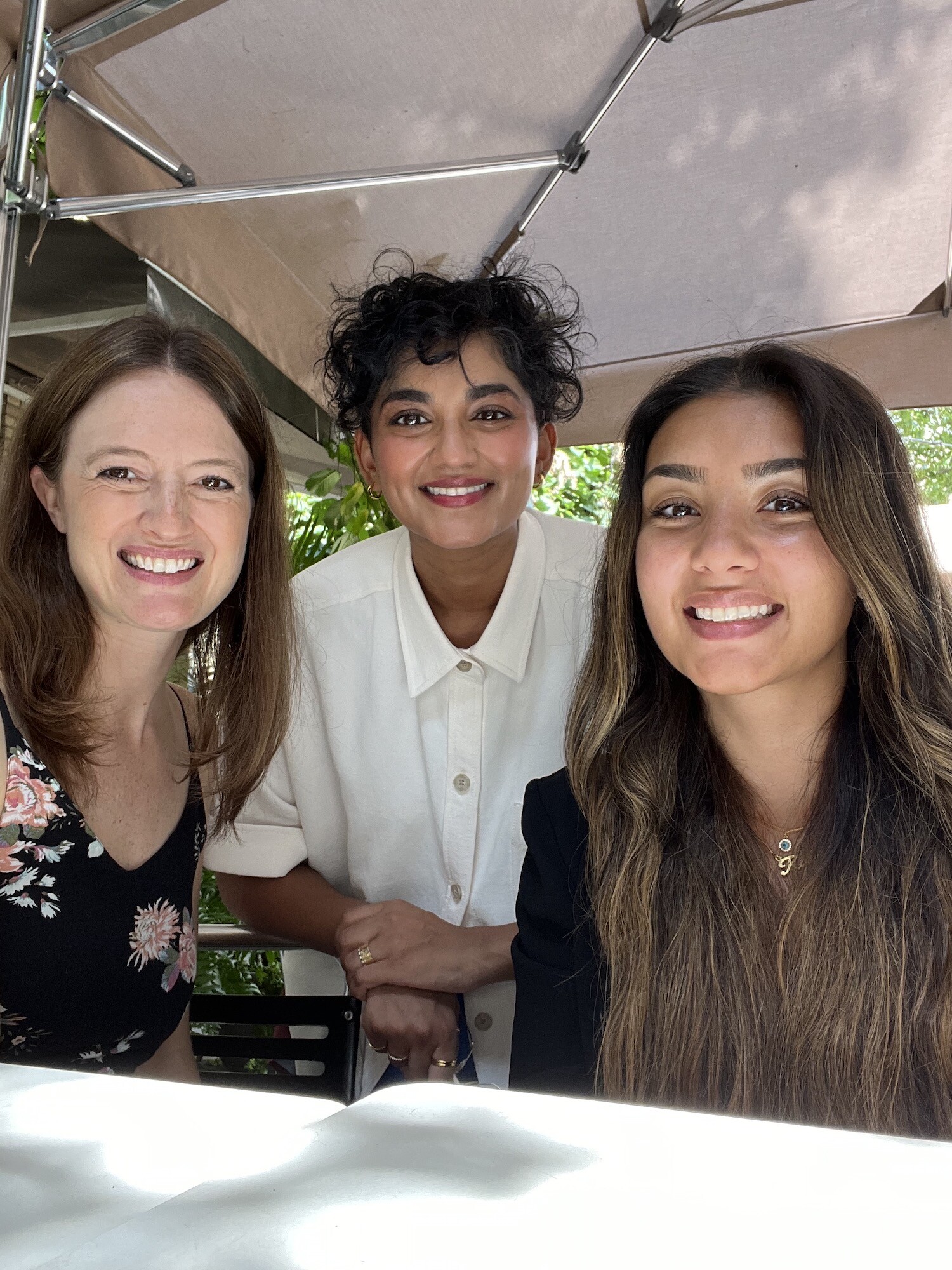Mobile Menu
- Education
- Faculty
- Research
- News & Events
- Divisions
- Equity, Diversity & Inclusion
- About Us

Being both a parent and a physician — and certainly a physician-in-training — is a challenging balancing act. For trainees at all levels, the idea of having a family while also meeting lofty professional goals in medicine can seem inconvenient, impractical, or even downright impossible.
That leads many physicians to delay childbearing or forego having a family altogether. Meanwhile, those who do have children can face reduced professional and training opportunities, a lack of career advancement, and resentment from colleagues who see their own workload being affected.
Faculty and trainees in our Department are working to change that. Following a 2021 research study by our Dr. Andrea Simpson, Dr. Maria Cusimano, and Dr. Nancy Baxter that illustrated how stigma and systemic barriers were leading physicians and trainees to delay childbirth — which in turn could be associated with an increased risk of infertility, miscarriage, and other pregnancy complications — a group of our faculty and trainees launched familyplanningfordocs.com.
Full of resources, information, and personal testimonials, the website is just one element of an advocacy campaign geared at de-stigmatizing childbearing among physicians and physicians-in-training, helping medical trainees at all levels — whether medical school, residency, or fellowship — make informed decisions about family planning, and ultimately prompting a systemic change in medicine to support physicians who have children at any stage.
“The website is the first step to normalizing this conversation around family planning/building within a medical career,” said Dr. Shirin Dason, a reproductive endocrinology and infertility fellow in our Department who has taken on a leadership role with the website and advocacy campaign.
“We want trainees to see that it is possible, even encouraged, to start a family during training by giving them access to resources, information, and a group of people who will help and support them.”
Research conducted by the team over the course of two qualitative studies — which interviewed medical students and residents from a variety of universities and different medical programs across Ontario — produced insightful data illustrating both the decisions being made around family planning by medical trainees, as well as some of the fear, misinformation, and prejudice that surround the issue. Further, these interviews revealed the extent to which medical trainees worry that having a family will hurt their professional careers.
“We found that students are fearful to discuss family planning or to ask questions because they’re worried about their own reputation,” Dason says. “The students are fearful that they’ll be labelled as someone who wants to have a family and might take time off from their training, and that they’ll therefore be viewed as a bad candidate.
“We heard a lot from trainees about the emphasis on service and not being able to leave work for things like medical appointments or fertility treatments. Once you do have children, you feel you can’t leave early to pick up your child from day care or stay home when they’re sick. All those concerns came through in the interviews.
“We basically found that trainees pick up on this hidden notion that family planning during a medical career is discouraged and difficult. Having a child is seen as a personal “choice” and a less valid reason to take time away from work.”
In addition to the website and its resources, Dason and the team are involved in educational outreach to underline the importance of the issue. They have met with leadership teams at U of T and other universities, conducted informative Academic Half Days for trainees, and created a workshop that is being offered as part of the undergraduate medical school curriculum here.
The website also has a mentorship component that connects trainees with working physicians who can speak to their questions and concerns around family planning in a medical career. This summer, the team also created a podcast with the leadership of their CREMS student, Radha Sharma.
Their efforts have now extended to understanding how to better support faculty within the Department of Obstetrics and Gynaecology as well as the Department of Surgery. They are currently conducting a needs assessment which will form the basis of efforts to improve upon work and life balance for all Departmental members, not just parents.
A mother of two, Dason can certainly recall the challenges she faced starting a family and undergoing fertility treatments during her ob-gyn residency. Her goal is to be a part of a change that allow parents at all levels to have a voice and to feel as though their life experiences matter. All of the ways that we choose to live our lives outside of medicine are valid, if they are valid to us.
“We want to create a supportive environment where people have the freedom to make choices around family planning without feeling like they have to overcome this insurmountable barrier. There are so many levels to this, from person to person to division to department to society as a whole. Culture change is a lofty goal, I know, but I think it’s possible.”
